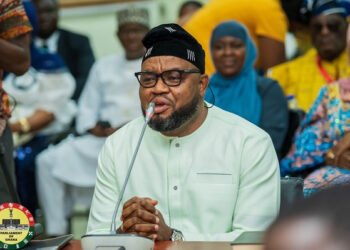The Board of Directors of the Ghana National Petroleum Corporation (GNPC) has denied claims that the Public Services Commission did not approve the appointment of Opoku-Ahweneeh Danquah as substantive CEO.
In a press statement, the Board stated that those claims are unfounded and should be treated with the utmost contempt.
According to them, the appointment of the CEO has been approved and is fully supported by the Board of Directors of GNPC.
“The Board wishes to state categorically, that the said publication is untrue and the general public is entreated to disregard it and treat it with the contempt it deserves.
Myjoyonline has a new design. Click here to try it.
National
GNPC CEO’s appointment was duly approved by Public Services Commission – Board of Directors
Source: Cornerlis Kweku Affre
8 March 2023 3:27am

The Board of Directors of the Ghana National Petroleum Corporation (GNPC) has denied claims that the Public Services Commission did not approve the appointment of Opoku-Ahweneeh Danquah as substantive CEO.
In a press statement, the Board stated that those claims are unfounded and should be treated with the utmost contempt.
According to them, the appointment of the CEO has been approved and is fully supported by the Board of Directors of GNPC.

“The Board wishes to state categorically, that the said publication is untrue and the general public is entreated to disregard it and treat it with the contempt it deserves.
“The CEO with the full support of the Board of Directors is focused on effectively steering GNPC to position itself in maximising the utility of the petroleum resources of the country for its citizens,” the statement read.
Mr Opoku-Ahweneeh Danquah was the former Deputy Chief Executive Officer in charge of technical operations prior to his appointment as the Corporation’s new CEO.
He took over from Kofi Koduah Sarpong who served as CEO for five years.
GNPC
The Ghana National Petroleum Corporation (GNPC) was established as a State-owned entity to operate on a commercial basis. The Corporation was given legal backing through two main statutes i.e., PNDC Laws 64 and 84.






























































